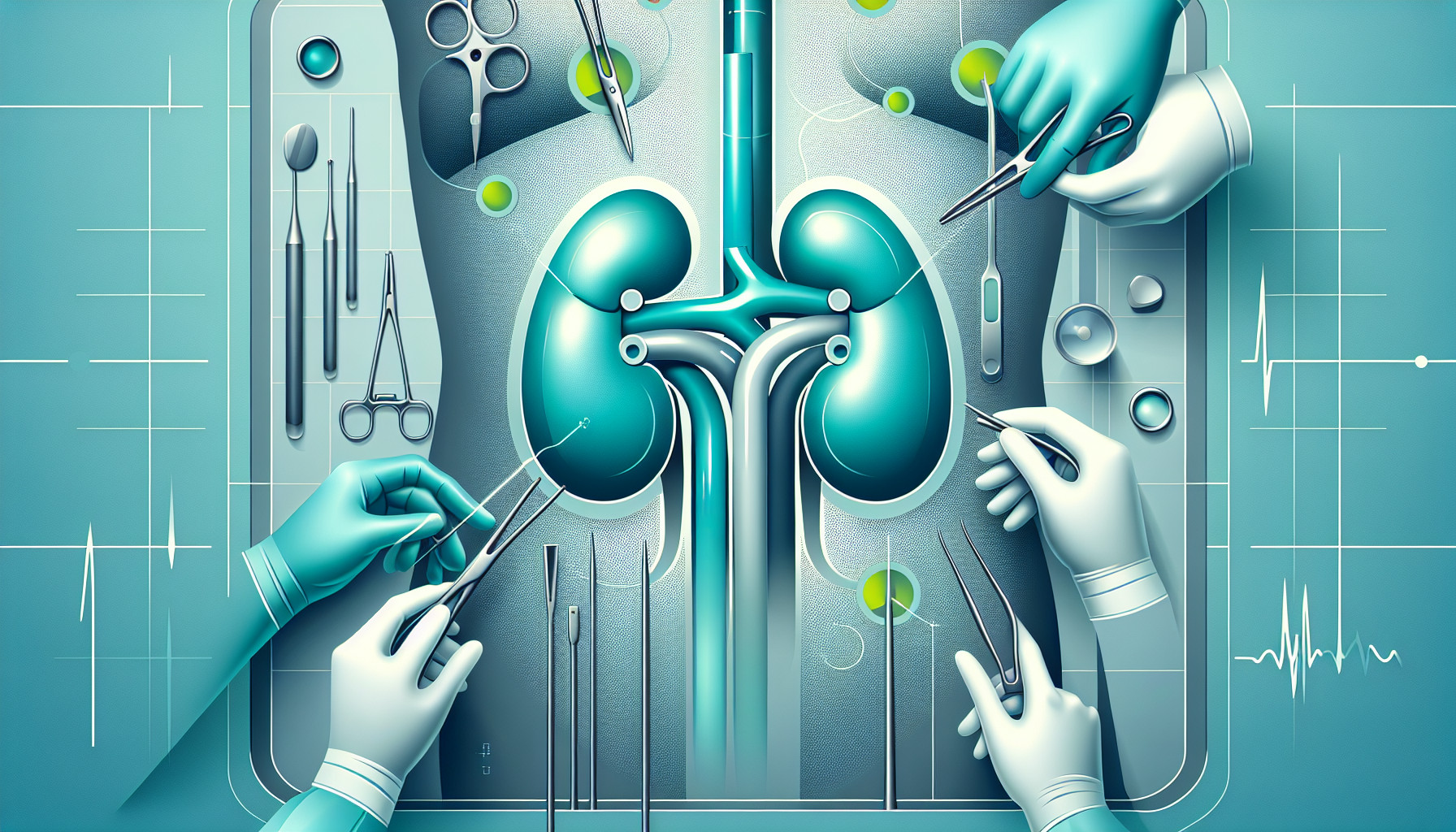Our Summary
This research paper is about how the involvement of surgical residents (doctors in training) in kidney transplant operations impacts the surgery length and patient outcomes. The researchers looked back at the records of over 2000 kidney transplants performed at a large academic hospital between 2006 and 2019, and they focused on the time it took for the residents to connect the kidney to the patient’s blood vessels (anastomosis time) and the number of patients who had complications after surgery.
The researchers found that as residents performed more kidney transplants, the time it took them to do the surgery decreased. This suggests they were becoming more proficient with practice. Importantly, the number of surgeries a resident performed did not significantly affect the rate of post-surgery complications. So, even though the residents were learning and getting faster, this did not lead to more problems for the patients.
In simpler terms, this study supports the idea that surgical residents can safely learn and improve their skills during real kidney transplants without negatively impacting patient outcomes.
FAQs
- Does the involvement of surgical residents in kidney transplant operations affect the length of the surgery?
- Does the number of surgeries a resident performs impact the rate of post-surgery complications?
- Can surgical residents safely improve their skills during real kidney transplants without negatively affecting patient outcomes?
Doctor’s Tip
A helpful tip a doctor might tell a patient about kidney transplant is to trust in the expertise and experience of the surgical team, including any residents involved in the procedure. This research shows that residents can learn and improve their skills during kidney transplants without compromising patient safety. It is important to have open communication with your healthcare team and to follow their recommendations for a successful transplant outcome.
Suitable For
Patients who are typically recommended for kidney transplant include those with end-stage renal disease, also known as kidney failure, who are no longer able to adequately filter waste and fluids from their blood. These patients may be on dialysis, which is a treatment that helps to remove waste and excess fluid from the blood when the kidneys are no longer able to perform this function.
Other patients who may be recommended for kidney transplant include those with chronic kidney disease who are at high risk of progression to end-stage renal disease, as well as patients with certain genetic conditions or diseases that affect kidney function.
In general, patients who are considered for kidney transplant are carefully evaluated by a multidisciplinary team of healthcare providers, including nephrologists, transplant surgeons, social workers, and other specialists. The team assesses the patient’s overall health, medical history, and potential risks and benefits of kidney transplant to determine if they are suitable candidates for the procedure.
Ultimately, the decision to recommend kidney transplant for a patient is based on their individual circumstances and the likelihood of a successful outcome. The goal of kidney transplant is to improve the patient’s quality of life and overall health by providing them with a functioning kidney that can adequately filter waste and fluid from their blood.
Timeline
- Before kidney transplant:
- Patient is diagnosed with kidney failure and referred to a transplant center.
- Patient undergoes evaluation to determine if they are a suitable candidate for a kidney transplant.
- Patient is placed on the transplant waiting list and waits for a suitable donor kidney.
- Donor kidney is found, and transplant surgery is scheduled.
- Patient undergoes pre-transplant preparation, including tests and medications.
- After kidney transplant:
- Patient undergoes transplant surgery where the donor kidney is placed in their body.
- Patient is monitored in the hospital for any complications or rejection of the new kidney.
- Patient is discharged from the hospital and begins post-transplant care, including medication management and follow-up appointments.
- Patient continues to be monitored for any signs of rejection or complications.
- Patient resumes normal activities and enjoys improved kidney function and quality of life.
What to Ask Your Doctor
- Can you explain the process of kidney transplant surgery to me in detail?
- How many kidney transplants have you performed in the past? What is your success rate?
- Will surgical residents be involved in my transplant surgery? If so, how experienced are they?
- How will the involvement of surgical residents affect the length of my surgery and my recovery time?
- What measures are in place to ensure that the surgical residents do not compromise the success of my transplant surgery?
- What are the potential complications that can arise from kidney transplant surgery, and how are they typically managed?
- How will my post-operative care be managed to ensure the best possible outcome?
- How frequently will I need to follow up with you after the transplant surgery?
- Are there any lifestyle changes I need to make after receiving a kidney transplant?
- What is the long-term outlook for a successful kidney transplant?
Reference
Authors: Rausch LA, McKay KG, Liu Y, Walker JC, LeCompte MT, Ewing JK, Walia S, Davidson M, Forbes RC, Shaffer D, Terhune KP. Journal: J Surg Educ. 2023 Dec;80(12):1850-1858. doi: 10.1016/j.jsurg.2023.08.013. Epub 2023 Sep 21. PMID: 37739890
